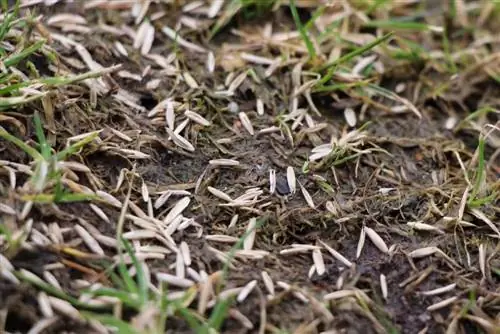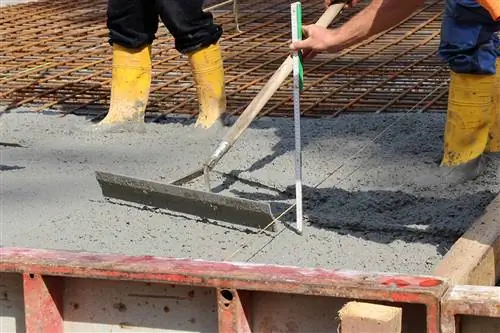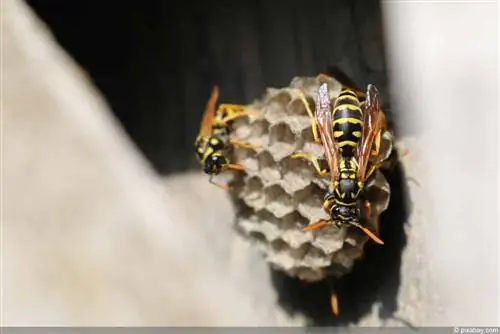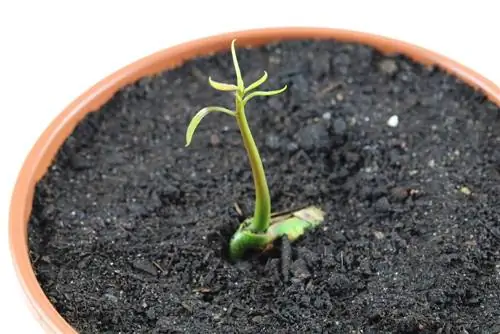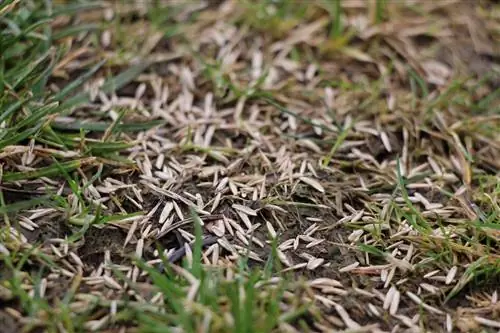- Author admin [email protected].
- Public 2023-12-17 03:39.
- Last modified 2025-01-24 12:45.
Growing grass seeds requires some patience. It can even take several weeks until the first stalks appear, during which no care mistakes should be made. With the right care, germination can even be promoted. However, in order for the grass seeds to germinate more quickly, many factors must be taken into account, such as regular supply of water.
Seeds
The germination time is also determined by the selection of grass seeds. Basically, a distinction can be made between expensive products and very cheap seeds. In this case, the price does not have to be the determining factor as to how well or how quickly the seeds germinate. Often even the cheapest seeds come out on top and require fewer days to germinate. However, a short germination time is not always a quality feature. Grass seeds that grow quickly often do not form a uniform pattern, resulting in an unsightly lawn. A slightly longer germination period can therefore be an advantage so that the lawn develops evenly.
Note:
Expensive quality seeds have the advantage that they usually have a better germination rate. This eliminates the need for time-consuming reseeding.
Sowing time
Theoretically, grass seed can be sown all year round, even in winter. However, at very cool temperatures the germination time is significantly extended because the delicate green would freeze, even though the seeds themselves are frost-resistant. For the fastest and most uniform germination possible, the soil temperature should be at least 10°C. Of course, there should also be sufficient moisture, as constant watering is often difficult, which is why it is advisable to choose months in which there is a lot of rainfall.
The ideal time is therefore in spring from April to May and in late summer from August to September. In both periods the temperatures are not yet very high, which means that the seed or seedling does not run the risk of drying out. In addition, increased rainfall is expected in these months, which means that additional irrigation does not have to be provided.
Tip:
A warm and rainy period should be chosen for sowing. This means that the seed usually has everything it needs and the amount of work is reduced.
Germination time
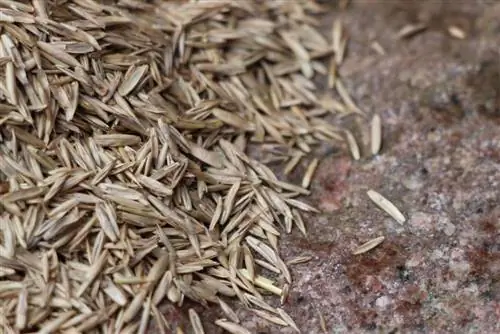
The question of how long it takes to germinate cannot be answered in general terms. It mainly depends on the quality of the seeds and the weather. This results in a germination period of seven to 21 days.
Reduce germination time
Even if the seeds should be given sufficient time for he althy development, it may be necessary to speed up the germination period. With a few tricks, the time can be reduced by a few days to a week. A faster germination time is based on three pillars:
- Preparation
- Sowing
- Care
The better the soil is prepared, the easier it is for the seeds to develop. When sowing evenly, the seeds not only develop better, but also produce a more beautiful lawn. Long-term care, especially the supply of water, can protect the sensitive seedling and promote its growth.
Soil preparation
Basically, a fine and even soil is an advantage for the grass seed. To do this, it must be prepared accordingly, for which the following equipment is required:
- Spade or for larger areas a motor hoe
- Calculations
- maybe. Spirit level
The soil is loosened and finely chopped with the spade or motor hoe. Everything is then smoothed out with a rake and the seeds are sown. Finally, the grass seed is pressed firmly with a roller. In between, the surface can be checked again and again with a spirit level so that unevenness can be eliminated from the lawn.
When preparing the ground, it is particularly important that weeds and stones are removed. Stones in particular can become a problem later when the lawn is mowed. Unevenness should be avoided if possible. This makes it more difficult to use the lawn later. In addition, waterlogging can form in the hollows, which can lead to the turf dying.
Sowing
After the soil has been optimally prepared, the actual sowing begins. Care should be taken to ensure that the seeds are spread evenly. If they are grown too thickly, the seeds will hinder each other's growth and the germination period will be extended.
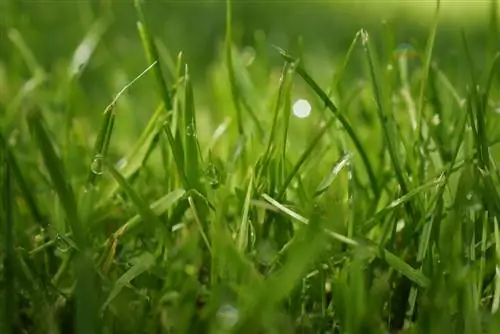
Sowing can be done by hand, but it will be more even with a suitable seed drill. This also prevents clumps from forming that hinder each other's germination. After sowing, the seeds are pressed firmly with a roller. This prevents the seeds from being washed away by rain. In addition, the individual seeds have good contact with the soil and can form beautiful roots.
Care after sowing
After sowing, the most important task is not to let the seeds dry out. Since the germination period can take up to three weeks, the lawn should be watered constantly during this time. A lawn sprinkler that is used to water the lawn once a day is ideal for this. However, the irrigation duration should be limited to ten minutes. This prevents waterlogging from forming and the seeds from dying.

